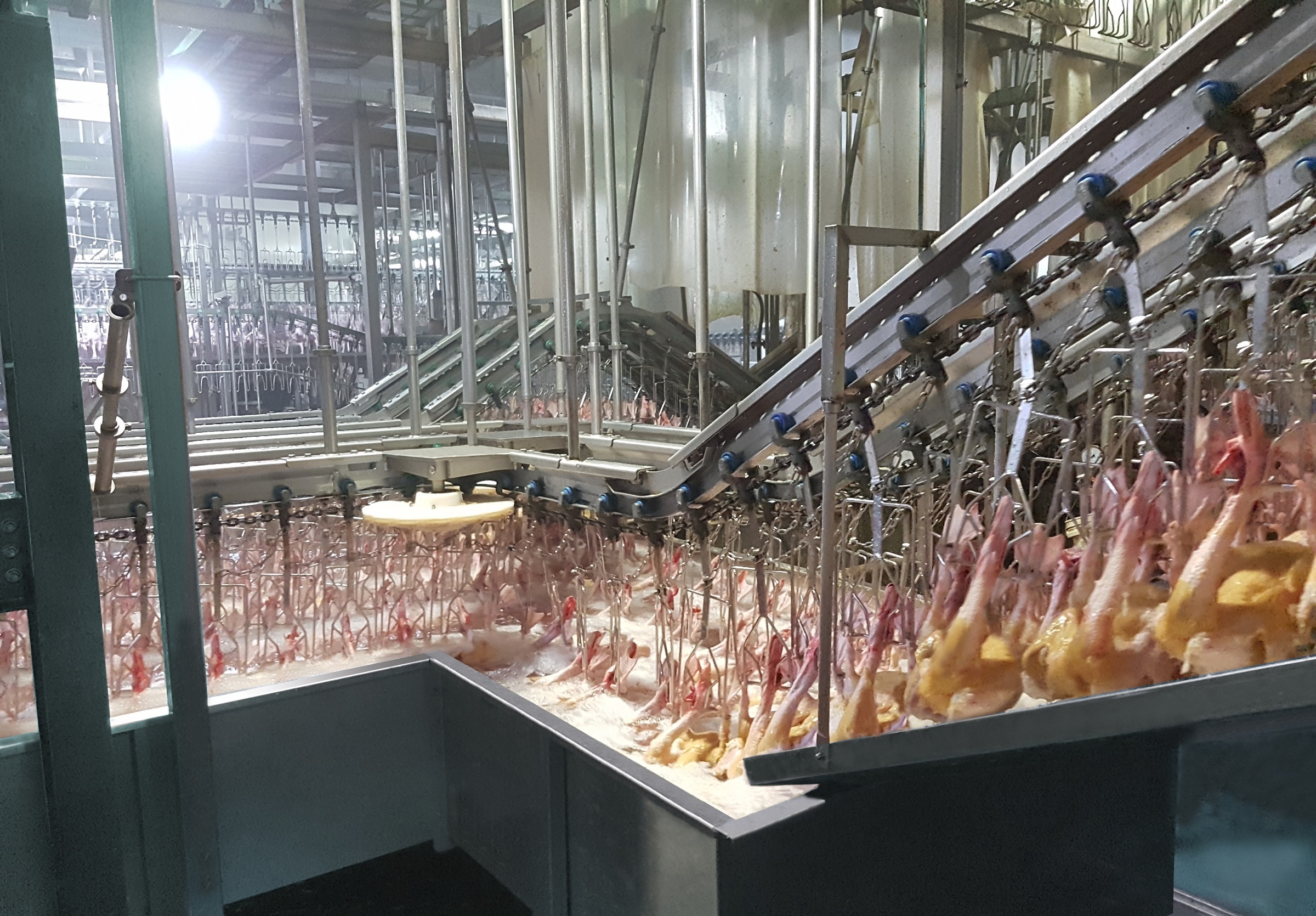🇮🇸 Duck skin quality comes first
Press release from Marel
Marel PMJ’s Drum Plucker and Waxing System save ‘pinning’ labor

In most duck markets and particularly in Southeast Asia, skin quality is paramount, as perfect skin presentation and an entirely clean whole duck are in great demand. Now that PMJ has become part of Marel, both companies have combined their duck knowledge and portfolios, resulting in a dedicated offering of automated duck processing solutions, ideally responding to produce such ducks.
In many duck processing plants today, a lot of people are employed to pluck the last pins and feathers from the skin with a brush and a pair of tweezers. A factory handling 3,000 dph [50 dpm] easily employs 50 people for pinning and a few dozen more in the secondary process for skin inspection. Marel can drastically reduce labor by automating plucking and waxing operations. The ideal solution for achieving the best possible skin quality is to use a Marel plucker configuration in combination with the Three-Point Suspension system and the sophisticated Marel waxing process.

A modern drum plucker
Marel’s Drum Plucker allows for adjustments to plucking time, rotation speed and the number of products, resulting in optimal feather removal even in difficult-to-reach areas. The Drum Plucker is not an old-fashioned machine. It is fully automated with automatic loading, counting, distribution and unloading. The only requirement is for operators to reshackle products.
The Three-Point Suspension stretches the skin of the duck, facilitating waxing in the groin and neck areas. The waxing process can be repeated multiple times, depending on the skin quality required. A single cycle consists of inserting the head in the three-point shackle, dipping in the wax, chilling the wax, releasing the head and then removing wax in a wax plucker.
Duck products in Southeast Asia
Duck meat is popular in Southeast Asia, where processing plants often have dedicated duck lines. Duck meat products can be found in supermarkets, restaurants, street food, and wet markets. The move to industrial processing is likely to be fast, as wet markets are becoming obsolete. A wide variety of duck giblets is on offer in supermarkets. In addition to the usual products such as butterfly gizzards, livers and hearts, there are also lower jaws complete with tongue, feet dipped in soja and proventriculus (forestomach) with the esophagus (feed pipe) on a skewer.
Originally published on 6 December by Marel.
Announcements are published as a service to readers. The sender is responsible for all content.
Announcements for publication can be submitted to [email protected].